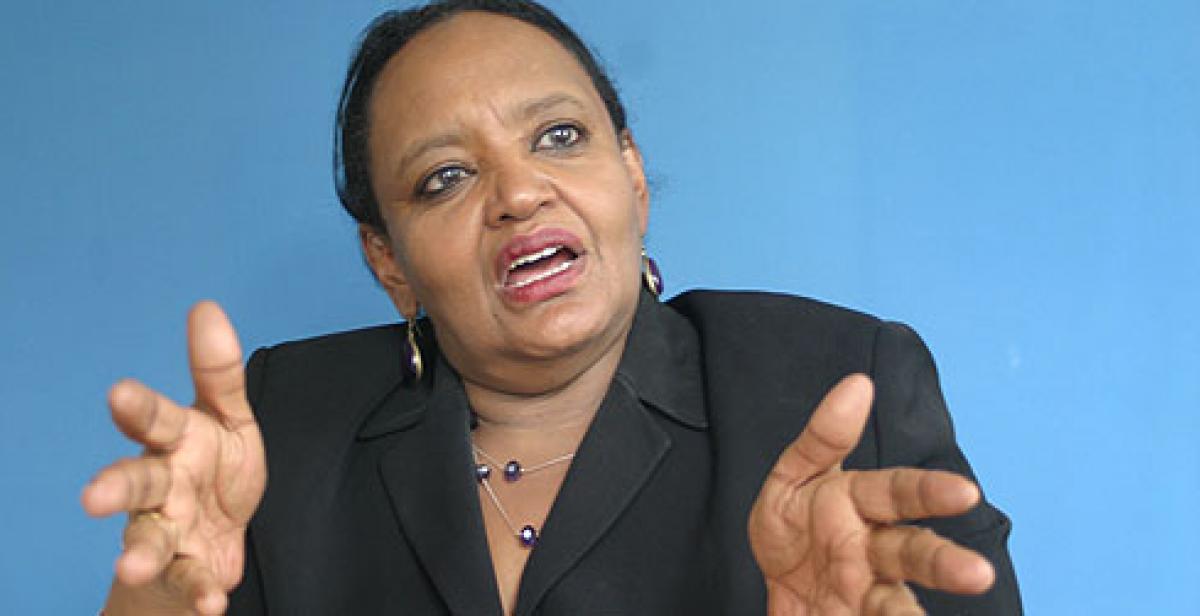Five years ago, Mustafa never dreamed that he could make something of his life. Mustafa, who lives in Somaliland, is blind. But that’s not all. Thanks to a stray land-mine, he also lost both of his arms below the elbow.
“I wished I was dead that day,” he says, thinking back to the accident. The prospect of a life without sight, and then without limbs, was just too much to bear.
Just a few short years on and Mustafa and 50 more young people like him are facing a much brighter future thanks to the work of Progressio partner organisation, Doses of Hope. Their inspiring director, Fadumo Alin, dropped in to see us a couple of weeks back.
Many of the visitors to Progressio’s UK office have incredible stories to tell. But Fadumo’s was something else. A former refugee herself, she escaped the raging conflict in north-west Somalia during the 1990s and eventually wound up, pretty much penniless, in Holland.
It was a real fall from grace. As a former owner of a shoe factory she had been used to supporting those she could with small micro-finance grants – not relying on handouts herself.
But, says Fadumo, that was no deterrent. “I realised I had two choices,” she says. “I could either dwell on the past or try and do something about what had happened – to help those who were still trapped back at home.”
So Fadumo and a number of fellow Somali refugees set about creating a charitable organisation to help the people they had left behind.
They faced an uphill struggle. At their first meeting with a lawyer to register the organisation, Fadumo was told to forget it.
She recalls: “The lawyer turned to me and said, ‘you guys are on social welfare, this idea will never work!’ and I looked at him and replied: ‘Thank you. But I don’t remember asking for your opinion.’”
Which is just as well because, ten years on, Doses of Hope and the women who run it are achieving incredible things. Just four years ago, they set up the Somaliland Braille Centre, a school for blind and partially sighted people which operates from the country’s capital, Hargeisa.
It is the first centre of its kind, and the response has been overwhelming. Month after month, visually impaired people travel from all over Somaliland to take part in the school’s educational programmes.
To date, 50 students have been taught braille and can now read and write, while 80 more are on the waiting list.
The numbers might not seem large, but the impact on the students’ lives has been colossal. Not only have they realised they have rights, says Fadumo, but the school has given a group of previously forgotten people a chance at life.
Disability in Somaliland is a tricky issue. Stigma and discrimination are rife, with many disabled people simply left at home by their families. As they get older, most are overlooked by employers who prefer able-bodied workers.
But Doses of Hope has started to change all that. Many of those who have been through the school now have mobile phones, can write in Somali – and some cases in English – and are learning how to use computers.
Mustafa has learnt to read – not with his fingers, but with his tongue. And he types with his feet. “And he has lot of friends,” says Fadumo. “And a mobile. And he sings!”
“I told Mustafa: ‘you can be the President of this country if you put your mind to it. It’s up to you!’,” adds Fadumo, beaming.
Across the country too, attitudes to disability are changing thanks to the widespread publicity the school has attracted.
Perhaps in ten years’ time, or twenty, the prospect of a blind, disabled leader will be at the very least ‘a possible’. If so, my bet’s on a Doses of Hope graduate.
Photograph: Fadumo Alin (Progressio)
Jo Barrett is Progressio’s Media Officer.
Progressio development worker Samuel Ogwang worked with Doses of Hope to build their skills and capacity, including advocating for the rights of the blind. Samuel brought considerable knowledge and expertise from many years of work with disabled and visually impaired children in his native Kenya.



